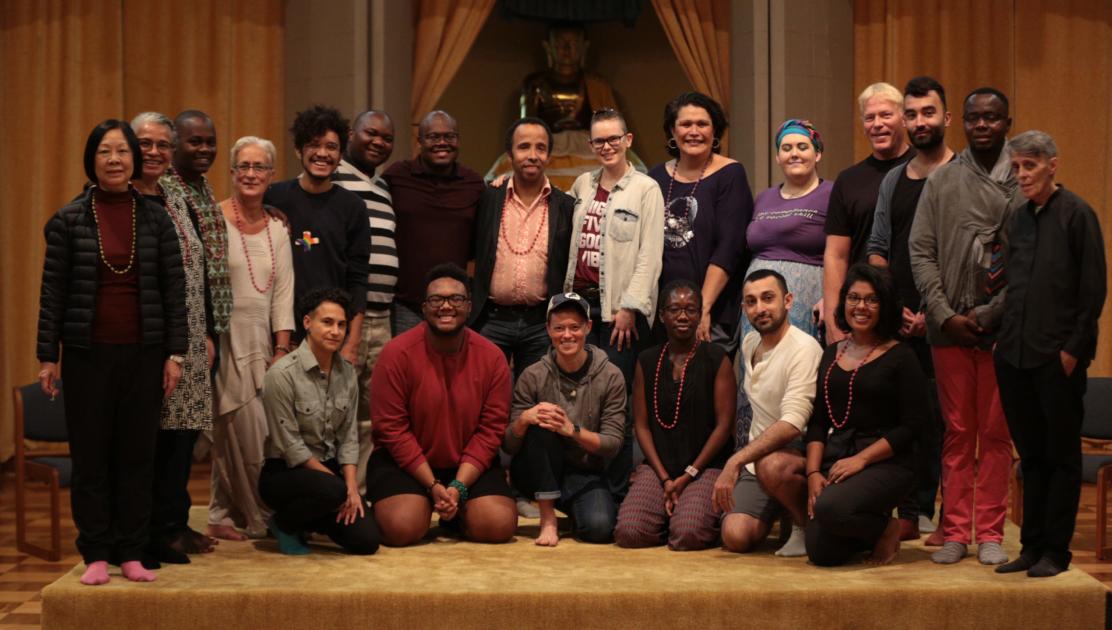Before Speaking at UN, LGBTI People and Advocates Gather at the Garrison Institute
By Stacey MitchellBefore speaking at a recent United Nations (UN) gathering titled “Ethics of Reciprocity,” eleven members from the lesbian, gay, bisexual, transgender, and intersex (LGBTI) community and advocates from across the world met at the Garrison Institute to prepare for the gathering.
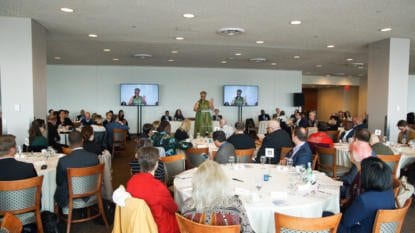
The “Ethics of Reciprocity” gathering at the United Nations
At the UN gathering, faith leaders discussed LGBTI rights in light of the Golden Rule—an idea found in many religious traditions but stated explicitly in the Christian Bible as “Do unto others as you would have them do unto you.” Rev. Patti Ackerman, a UN Representative with the International Fellowship of Reconciliation (IFOR)—along with the Arcus Foundation and the Horizons Foundation—brought together a panel of people for the UN gathering that included the UN Assistant Secretary-General for Human Rights, country leaders and representatives, and UN workers so that they could hear from those who had gathered at the Institute earlier.
The Garrison Institute offered a contemplative environment where these LGBTI advocates could open their hearts, share their stories, and prepare for their testimonials to UN leaders. None of them had met before, and the group only knew Rev. Ackerman and the lead staffer for IFOR, Rev. Lucas Johnson, by name. They came from a wide variety of faith traditions from all over the world—South Africa, Brazil, Samoa, Uganda, Malawi, Tajikistan, Hong Kong, Ghana, and the United States. Yet, as they told their difficult and traumatic personal stories and explained the challenges they faced in their countries, they were united.
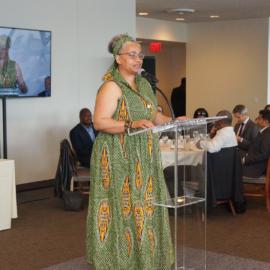
Dr. Yvette Abrahams
Dr. Yvette Abrahams, a descendant of Herero and Nama minority groups initially from Namibia, explained that over 75% of the 80,0000 Hereros had been slaughtered by the Germans from 1904 to 1907. Those who survived escaped to Botswana and the surrounding areas of Africa. She is an advocate for those on the African continent and beyond who have been persecuted for being identified as LGBTI. Many LGBTI community members have been subject to hangings, death in prison, among other ways of being persecuted. She asked those gathered at the United Nations to ponder how her LGBTI community could be in God’s love within the midst of genocide, just as her people had had to ask themselves years ago in Africa.
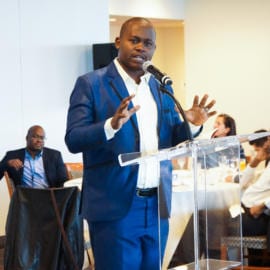
Rev. Byamukama Lawring Brian
Rev. Byamukama Lawring Brian of Uganda leads a congregation in a country where 96% of Ugandans have stated they do not support LGBTI people. Recently, a committee of five religious people have recommended banning LGBTI people in churches and that ban is soon expected to become law in Uganda. Holding back tears throughout his presentation, he recounted being attacked just one week earlier and how he had “survived by courage coming ahead of me.” Continuing he said, “The environment we live in has been contaminated by the selfish desires of extremists” and stated how he has a great challenge ahead of him with his work with Christ, as he has been betrayed by his church. “As a bi-sexual religious man and Baptist, I confirm that God created me for a purpose. He loves me, and it is out of love that he created me.” His love for all those he courageously and openly defends back in Uganda was palpable. He will be in a dangerous position when he returns home.
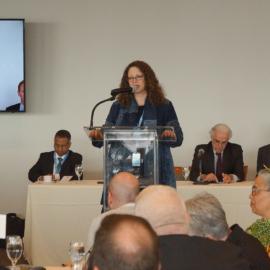
Dr. Karima Bennoune
Dr. Karima Bennoune, UN Special Rapporteur in the field of cultural rights, wanted those listening to understand the distinction between cultural and religious rights and cultural relativism. A right does not justify stripping another person of his/her rights and committing violence against that person, yet that is often what happens to those who identify as LGBTI. One’s cultural identification in the relative existence of the world should never discriminate another.
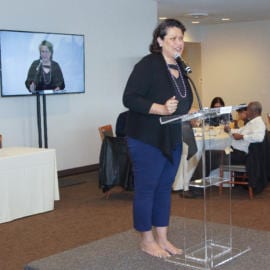
Ymania Brown
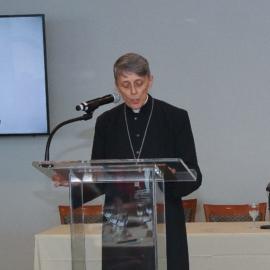
Rev. Pat Bumgardner
Addressing those gathered at the UN, Ymania Brown from Samoa—who is Catholic and Co-Chair of the Global Interfaith Network for People of all Sexes, Sexual Orientations, Gender Identities & Expressions—said, “The UN has the power to combat hate.” She gave a list of examples where people in Morocco, France, Iran, Turkey, among other countries have been persecuted by governments or individuals who have either identified as LGBTI or been suspected of being an LGBTI person. Inter-sex babies born in Malawi are even killed after birth. Recounting recent events, Rev. Pat Bumgardner from the Metropolitan Church of New York spoke of two people who were recently hung in Iran for suspicion of being gay, as well as two in Chechnya. Rev. Bumgardner also said that, if you are in Burundi, you will likely receive the death penalty for being identified as an LGBTI person; if you waive a rainbow flag in Cairo, you will be arrested; and if you are raped, many communities believe the rape assists in the “correction” of someone being LGBTI.
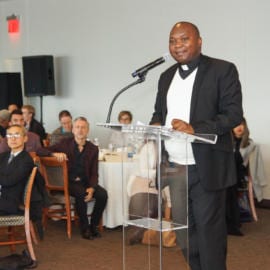
Father Martin
An Anglican Minister, Father Martin—who is told daily that he is an agent of the devil for defending the rights of LGBTI people in his country of Malawi—shared stories of what he hears in religious circles in his country. It is not uncommon to hear religious in Malawi say “It is best to kill them” or that LGBTI people “should not be protected” and that they are also sexually molested in order to “correct them.” Father Martin is in the minority with his religious perspective that LGBTI people are God’s children and should be treated as such.
Underlying these presentations were important questions for those of us seeking justice in the world: Do we have a spiritual and moral imperative to help those in less fortunate situations than our own? Are we morally obligated to help others because of the Golden Rule?
Everywhere in the world, humanity is having to confront the “religious right”—those who use faith as cover to increase and solidify power based on the tactic of fear to rationalize why all are not equal. They often use divisive language, which is not built on compassion and love for all.
At the UN gathering, people were reminded that we should not feel comfortable with notions of certainty. Faith is the opposite of certainty—it’s the notion that in uncertain times there is something beyond fear, something that binds us together. If we can start to see beyond fear, then maybe we can begin to comprehend more of what Dr. Abrahams said at the beginning of the testimonials: We can begin to find God’s love in the midst of a genocide. Only when we see the interconnectedness of all of humanity and reclaim our equality will we see that genocide is not an evil act happening on another side of a border.
Stacey Mitchell works at the Garrison Institute. You can find her on Twitter here.
